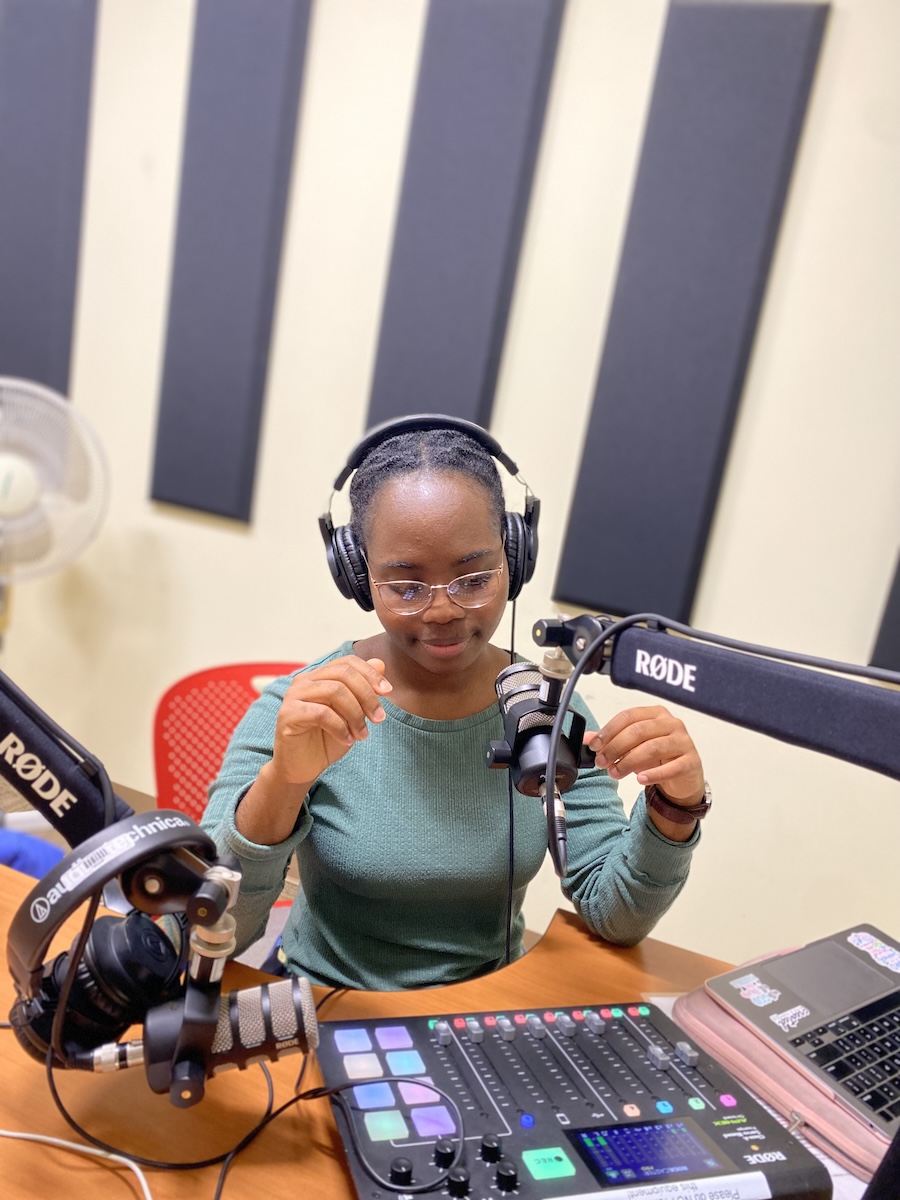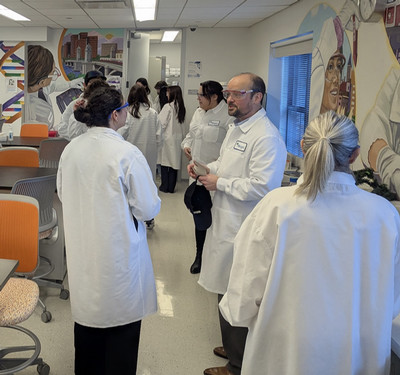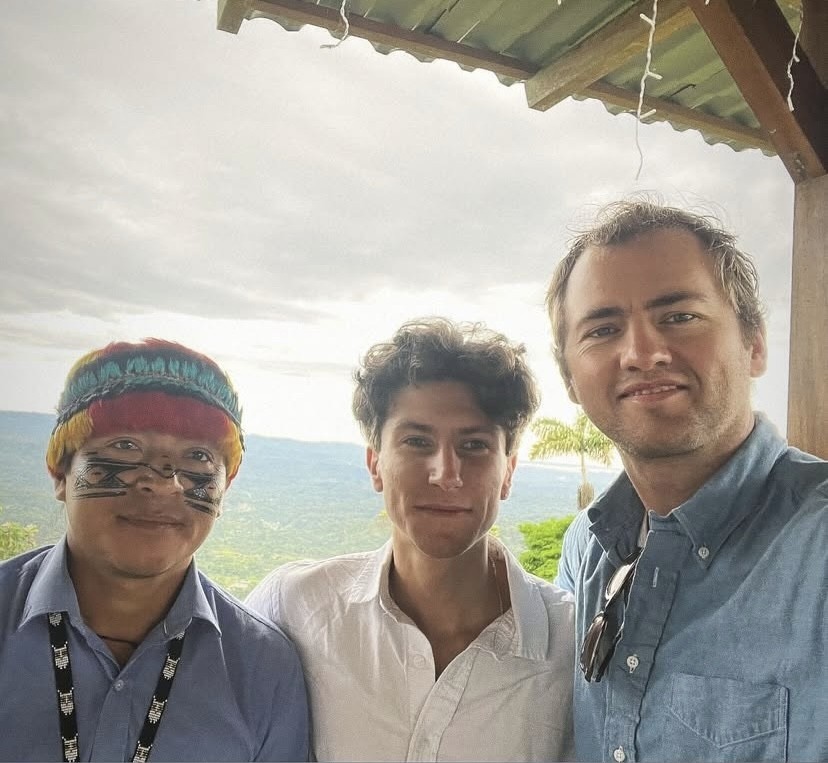Green Summers: Case Studies of Environmental Internships
By Rebecca Goldfine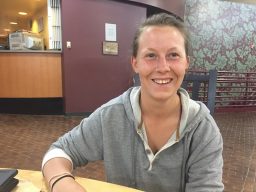
Major: German, with a minor in psychology
Grant: Strong/Gault Social Advancement Internship
Internship: Cultivating Community, Lisbon, Maine
Casey Krause describes herself as an “all-around intern” this summer at Cultivating Community’s “New American Sustainable Agriculture Project,” where she’s assisting farmers ages 20 to 60, all refugees or immigrants. Most are from East African countries. “I work with newer farmers in the program,” Krause explained. “They’re still learning how to grow in a New England climate and learning how to navigate the market.”
The goal of Cultivating Community’s New American agriculture program is to help provide immigrant families with farming income and to give them more access to healthy food. Cultivating Community owns farmland in Lisbon, Cape Elizabeth, and South Portland and leases the land to these farmers at affordable rates. The nonprofit also provides marketing and delivery assistance.
Krause said she was attracted to the internship because she likes farming and she wanted to learn from this particular farming internship’s “cross-cultural aspects.” Many of the people she interacts with at Cultivating Community’s Lisbon farm are from Somalia and Sudan. “I study German language and culture, and I have learned a lot about refugees in the German context,” Krause said. “I felt obligated to learn about refugees in America.”
She said sometimes when she’s out on the field and people are speaking in different languages around her, she almost feels like she’s the foreigner.
During Ramadan, the farmers—who are mostly Muslim—fasted, Krause said, and she could see them slowing down in the fields by mid-afternoon. On Eid al-Fitr, on July 5, the farmers took the day off to celebrate the end of Ramadan. The management team picked up the slack, but in the future Cultivating Community may not sell produce on the Muslim holiday “to make it an awareness-raising day because Eid is now a major holiday in America,” Krause said.
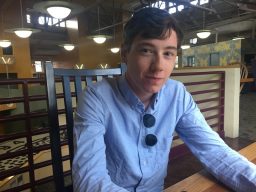
Major: Biology
Grant: Robert S. Goodfriend Summer Internship Fund
Internship: Agri-Cycle Energy, Portland, Maine
Alex Vasiliou is working for a Maine-based company that collects organic waste (mostly food) from restaurants and grocery stores—including Hannaford, Whole Foods and Wal-Mart—and converts it into clean electricity. When food breaks down, it naturally releases methane, a potent greenhouse gas. To prevent this from happening and to create a source of renewable energy, Agri-Cycle processes food waste and cow manure in an anaerobic digestion facility that captures the methane for usable energy. Agri-Cycle also turns the liquid and solid byproducts from this process into fertilizer and livestock bedding, respectively.
Vasiliou discovered the company last winter when he decided he wanted to learn more about the connection between food waste, energy, and the climate. After reading up on Agri-Cycle, he reached out to the company and landed an internship with them. “Since I’m young, I thought I would fight the good fight,” he said, with a wry smile.
Vasiliou, a biology major, said he’s fascinated by how things work, and believes that he can apply his understanding of biological systems to improving industrial ones. He says he’d be happy working in logistics and operations for a company one day. This summer, he’s doing that type of work for Agri-Cycle, figuring out the most efficient trucking routes to save the company money on gas. Currently the company has pick-up sites in Maine, Massachusetts, and New Hampshire.
Later in the summer, Vasiliou says he’ll examine Bowdoin’s methods of disposing its organic waste—mainly food waste from its dining halls—to see if there are actions the College can take to reach its 2020 carbon neutrality goal.
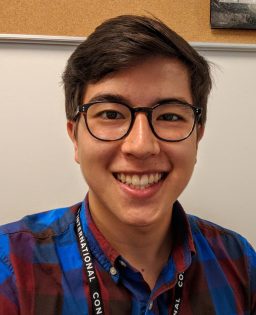
Major: Environmental studies and economics
Grant: Robert S. Goodfriend Summer Internship Fund
Internship: Conservation International, Arlington, Va.
Jesse Chung is interning at Conservation International, a global NGO, in its Policy Center for Environment and Peace. Chung works with the Global Public Partnerships team, which engages with multilateral organizations like the United Nations, Global Environment Facility, and World Bank, to support important ecological projects around the world. “I’m learning a lot about the global network for financing conservation and environmental projects,” he said.
Chung said he’s interested in the economics of environmentalism, including “natural capital accounting,” which involves assessing the value of an ecosystem’s services and resources for people and communities. This economic analysis can help strengthen arguments about the need to protect, say, a forest from logging or development. “I think a lot of the advocacy for environmental issues doesn’t always effectively take into account the economic side of things, when it is such a huge motivator for actors and sectors in society,” Chung said. “Unless we consider those costs, it will be hard to make progress.”
As part of his internship, Chung is researching financing mechanisms that could help developing countries afford conservation projects. Many of the funding tools currently being assessed at his organization are designed to curb climate change, according to Chung. “Conservation International does a lot of work on climate change mitigation and adaptation,” he explained.

